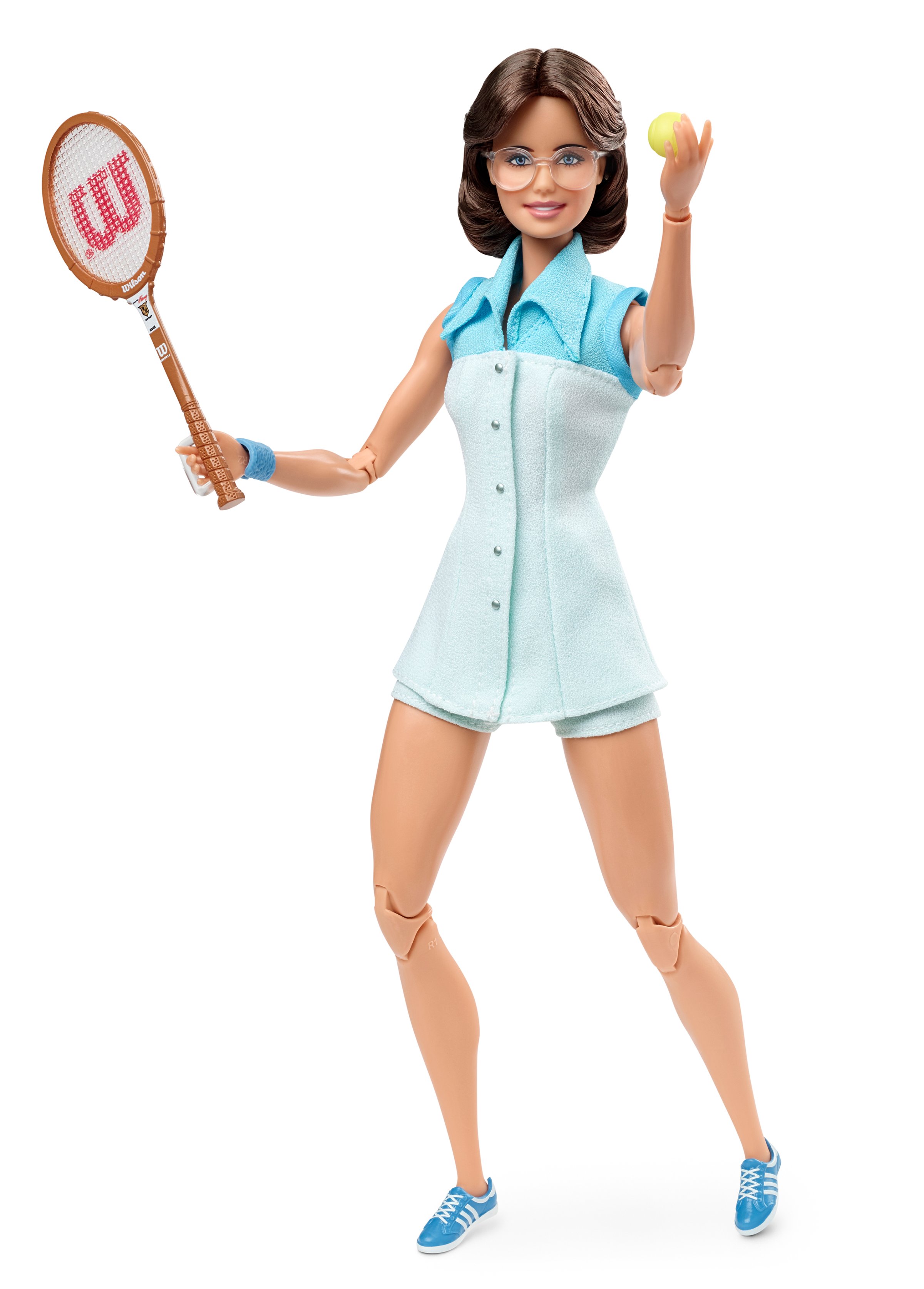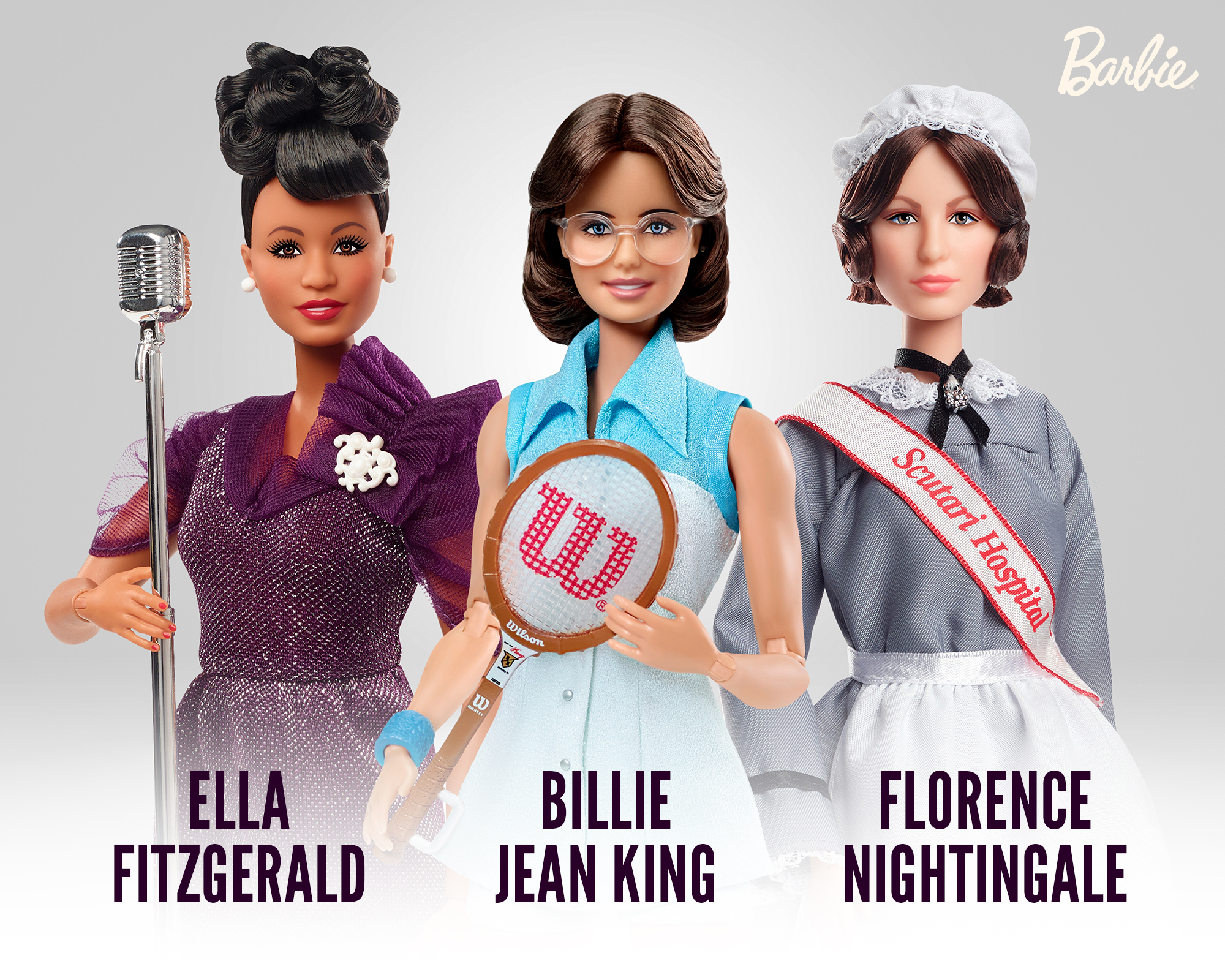
When Billie Jean King was growing up, Barbie dolls didn’t even exist yet; the popular brand debuted when she was 15 years old, well on her path to becoming a trailblazing tennis legend, as King told TIME.
But today, the Barbie brand is honoring King as one of their new Inspiring Women dolls, complete with an outfit, tennis racket, glasses and sneakers based on the gear she wore when she famously won the 1973 “Battle of the Sexes” against Bobby Riggs — a moment that confirmed her place in sports history. She would go on to found the Women’s Tennis Association and Women’s Sports Foundation, be inducted into the National Women’s Hall of Fame and receive the Presidential Medal of Freedom in 2009, while continuing to advocate for further opportunities for women in sports.
“It’s really a privilege,” King told TIME of now becoming immortalized as a Barbie herself. A representative of Mattel explained their choice: “She is not only a legendary tennis player, but also an equality champion,” Lisa McKnight, SVP and Global Head of Barbie and the Dolls Portfolio at Mattel, told TIME. “By shining a spotlight on her powerful story, we are continuing to show girls that they can be anything.”
She joins a line of dolls that the Mattel brand released in recent years modeled after real women icons, including civil rights hero Rosa Parks, artist Frida Kahlo and astronaut Sally Ride. (Ride, in fact, was a personal friend of King’s: “She wanted to be a pro tennis player first!” King said about Ride. “She always told me that being an athlete really helped her at NASA. It helped her be the first one because of her agility. And she was a scientist. These are things that children, they learn about each one of these dolls: they can dream too. They can dream big and they can go for it.”)

The latest set of three new historic female figures included in the Barbie canon are King, jazz singer Ella Fitzgerald and founder of modern nursing Florence Nightingale. “It’s such an honor to me to belong with these women that made such a difference to make the world a better place, and to lead and to show girls that we can be anything: we define ourselves,” King said. Besides creating dolls in the likeness of famous figures, Barbie has also made an effort in recent years to diversify its offerings with dolls in a range of different sizes and gender-nonconforming appearances. ”
King’s doll is part of the Inspiring Women Series, launched in 2018, which Barbie kicked off to endeavor to close the “Dream Gap,” which researchers have identified as the common experience of young girls downplaying their potential in comparison to boys, based on exposure to stereotypes. “All these women are trailblazers who have made a significant impact in their respective areas of focus, and any fan can benefit from knowing their stories,” McKnight explained, nodding at the diversity of the figures that Barbie has selected in the series.
“We have to stop teaching our girls they’re never good enough. It starts in childhood,” King noted; girls are shown to develop “self-limiting beliefs” at a young age. “Barbie can help that. You can use your imagination with Barbie doll, which is really important,” King said.
More Must-Reads from TIME
- Why Biden Dropped Out
- Ukraine’s Plan to Survive Trump
- The Rise of a New Kind of Parenting Guru
- The Chaos and Commotion of the RNC in Photos
- Why We All Have a Stake in Twisters’ Success
- 8 Eating Habits That Actually Improve Your Sleep
- Welcome to the Noah Lyles Olympics
- Get Our Paris Olympics Newsletter in Your Inbox
Write to Raisa Bruner at raisa.bruner@time.com